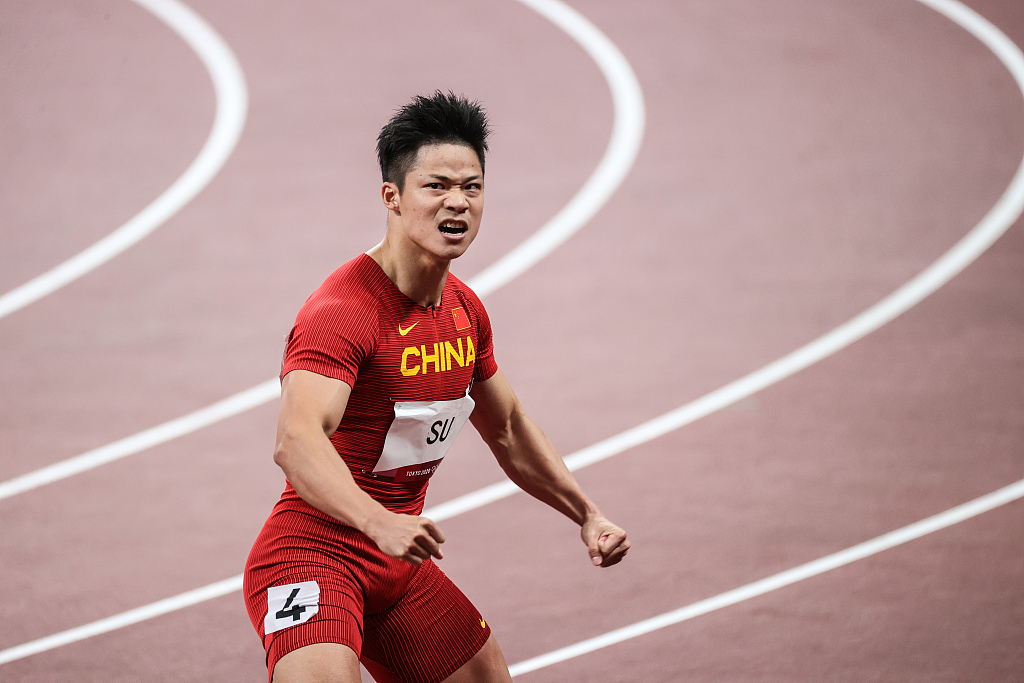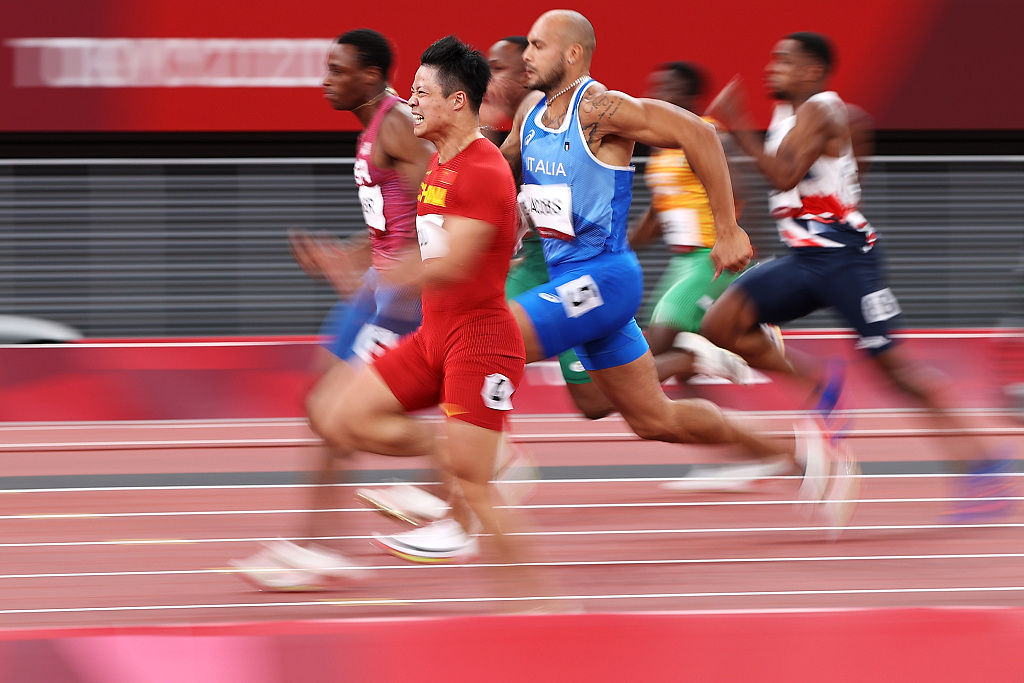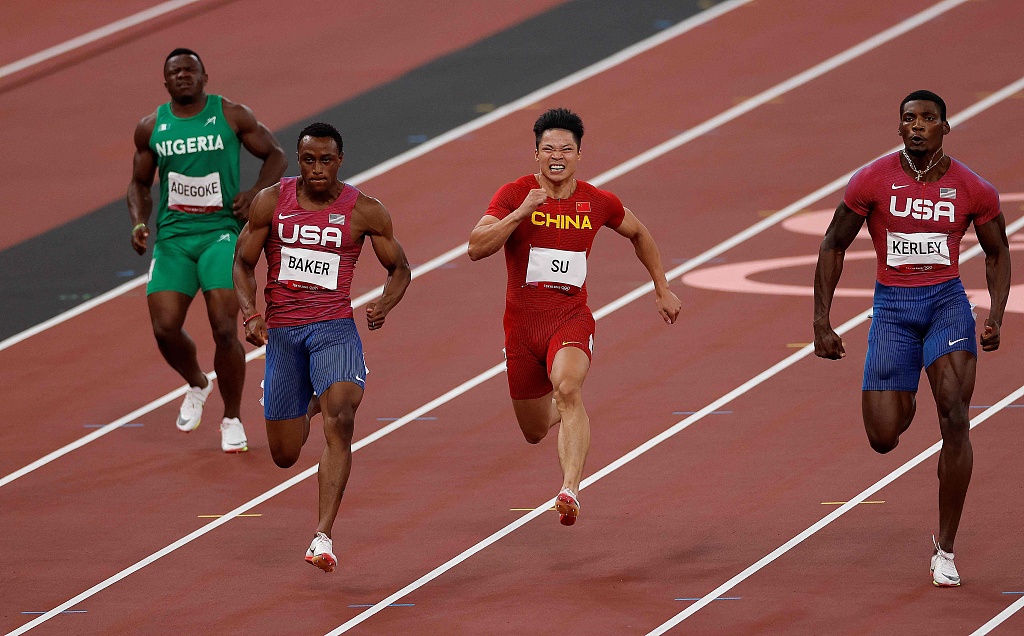
Su Bingtian of China celebrates after finishing men's 100m semifinal at 9.83 seconds in the Tokyo Olympics at the Olympic Stadium in Tokyo, Japan, August 1, 2021. /CFP
Su Bingtian of China celebrates after finishing men's 100m semifinal at 9.83 seconds in the Tokyo Olympics at the Olympic Stadium in Tokyo, Japan, August 1, 2021. /CFP
Chinese sprinter Su Bingtian called himself one of the biggest beneficiaries of sport exchange between China and the Western world in an interview with China News Service (CNS).
31-year-old Su made history in the Tokyo Olympics by setting the new Asian record for men's 100m at 9.83 seconds in the semifinal and finishing sixth in the final at 9.98 seconds. There used to be the biased view that no Asian sprinter can finish 100m within 10 seconds. Su proved people wrong with his performance.
"I never thought we couldn't do it, but there have been some problems with our concept of training the whole time. Now we did it by finishing at 9.83 seconds. That's best proof to beat such prejudice," said Su to CNS.

Su Bingtian (C) of China competes in men's 100m semifinal in the Tokyo Olympics at the Olympic Stadium, August 1, 2021. /CFP
Su Bingtian (C) of China competes in men's 100m semifinal in the Tokyo Olympics at the Olympic Stadium, August 1, 2021. /CFP
Su believes scientific training plays a key role in his success. "I realized that running as much as possible does not necessarily help you run faster. Scientific training attaches more importance to applying of technique and requires you to do it right instead of doing it a lot. In that way, athletes can save more strength in training and recover faster," said Su.
According to Su, he did not understand some of the moves coaches asked him to do when he went to train abroad at the beginning. It took him years to realize the importance of stamina allocation as well as how to do it on the field. "That's why I chose to change how I started off at the end of 2014 and acquired a new running pace," said Su.
Su and his American coach Randy Huntington began to cooperate in 2017. Huntington made detailed analysis of Su's condition based on "champion model" from the start before arranging specific training sessions for Su to work on. Su said that played a key role in the process of him making breakthrough.

Su Bingtian (C) of China competes in men's 100m final in the Tokyo Olympics at the Olympic Stadium, August 1, 2021. /CFP
Su Bingtian (C) of China competes in men's 100m final in the Tokyo Olympics at the Olympic Stadium, August 1, 2021. /CFP
Chinese track and field athletes have made decent progress in recent years not just in sprinting. Gong Lijiao became a top shot putter; Huang Changzhou rose in men's long jump. Su believes the Chinese track and field deciding to connect more with the international counterpart was the reason behind the progress.
"'Opening to the world so we can develop sports better' is an open-minded, bold reform that shows China's confidence in competitive sports in the new era," said Su.
When asked if there will be another "Su Bingtian" in the future, Su's answer was "Yes, 100 percent." "People in the future can definitely do what I can do. I'm looking forward to seeing if they can do it better than me. All records are to be broken," said Su.

